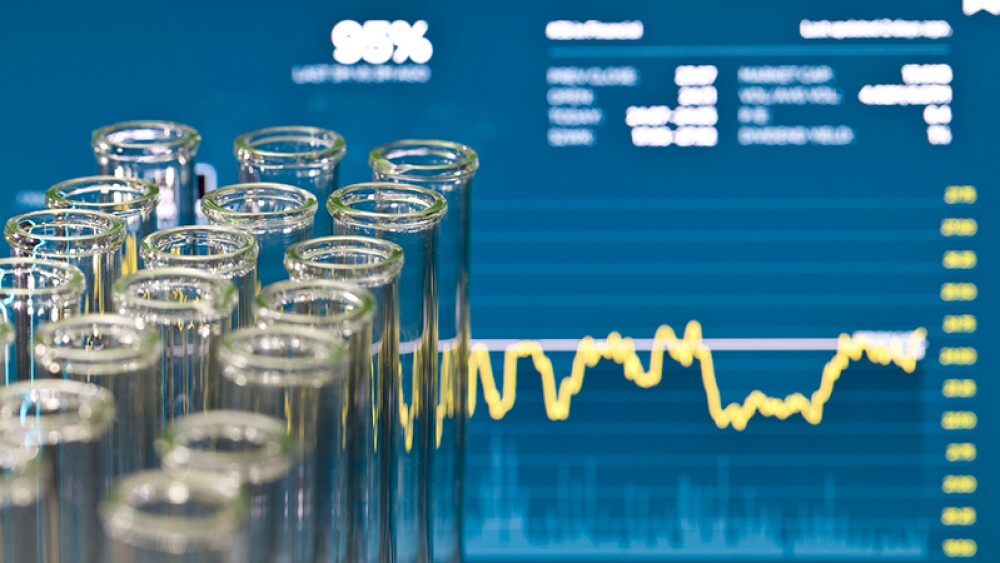June 20, 2017
By Mark Terry, BioSpace.com Breaking News Staff
Although a stock price doesn’t always correlate to profitability, for bigger biopharma companies, profitability is a positive thing. Keith Speights, writing for The Motley Fool, takes a look at the five big pharma companies with the highest net margins in the industry.
Despite general moaning and groaning by investors and analysts over Gilead ’s hesitation to buy companies to bolster its sagging hepatitis C franchises, Gilead has the highest profit margin of any of the big biopharma companies. Over the last 12 months its revenue was $29.1 billion, with earnings of $12.6 billion. That’s a net margin of 43.4 percent.
The hepatitis C franchise is still in trouble, so the company’s net margins are likely to fall. Speights writes, “Although Gilead doesn’t break down profitability by product, the biotech’s HIV drugs generated the most revenue for the company in the first quarter. Fast-growing Genvoya and longtime leader Truvada stood at the top of Gilead’s HIV franchise in sales.”
Gilead is currently trading for $64.95.
In the last year, Amgen reported $22.9 billion in revenue and earnings of $7.9 billion. That means a net margin of 34.5 percent.
Amgen is heavily reliant on two products, bone marrow stimulant Neulasta, and Enbrel, for autoimmune diseases. They account for about 46 percent of total sales. But Enbrel sales fell 15 percent year over year in this year’s first quarter, and Neulasta grew only 2 percent compared to the same quarter the year earlier.
Speights writes, “Amgen could potentially see net margins rise if cholesterol drug Repatha achieves the expectations that the company has for it. Many expected the drug to become a huge blockbuster for the biotech, but payers have been reluctant to pay for Repatha so far.”
Amgen is currently trading for $167.62.
Switzerland’s Novartis brought in revenue of $49.4 billion in the last year, with earnings of almost $6.4 billion. That breaks down to a net margin of 34.2 percent.
Speights notes that Novartis’ profitability is driven by its oncology drugs, nine of which generate about 25 percent of total revenue. Its top-selling drug is Gleevec, for chronic myeloid leukemia and gastrointestinal stromal tumor.
Today the company announced spectacular results from two Phase III trials of RTH258 for neovascular age-related macular degeneration (nAMD). They showed it worked as well as competitor Regeneron (REGN)’s Eylea, but will require fewer injections to the eye. Once approved, it’s projected to bring in $1 billion annually.
Novartis is currently trading for $82.11.
This Cambridge, Mass.-based company reported $11.53 billion in revenue the last 12 months, with earnings of almost $3.5 billion. It has a net margin of 30.2 percent.
It is the dominant player in multiple sclerosis (MS). Speights writes, “However, that could be changing for a couple of reasons. One is that Biogen expects to benefit from growing sales of spinal muscular atrophy drug Spinraza. The drug, which Biogen licensed from Ionis Pharmaceuticals , could reach peak annual sales of $2.5 billion.”
However, MS sales appear to be slowing and competition is increasing. Its experimental Alzheimer’s drug, aducanumab, is still years away from possible approval.
Biogen is currently trading for $265.04.
Bristol-Myers reported $20 billion in revenue in the past year, with earnings of $4.8 billion. Its net margin is 24.2 percent. The company depends on two drugs for most of its profitability—Opdivo was responsible for about 23 percent of total revenue in the first quarter of this year; and anticoagulant Eliquis, which was responsible for 22 percent of total revenue in that quarter.
Speights writes, “Although Opdivo’s failure in a late-stage study targeting first-line lung cancer caused analysts to cut their forecasts for the drug, it should still become increasingly important for BMS’ profitability in the future. Opdivo could eventually make more than $10 billion annually for Bristol-Myers Squibb.”
Bristol-Myers Squibb currently trades for $55.95.





